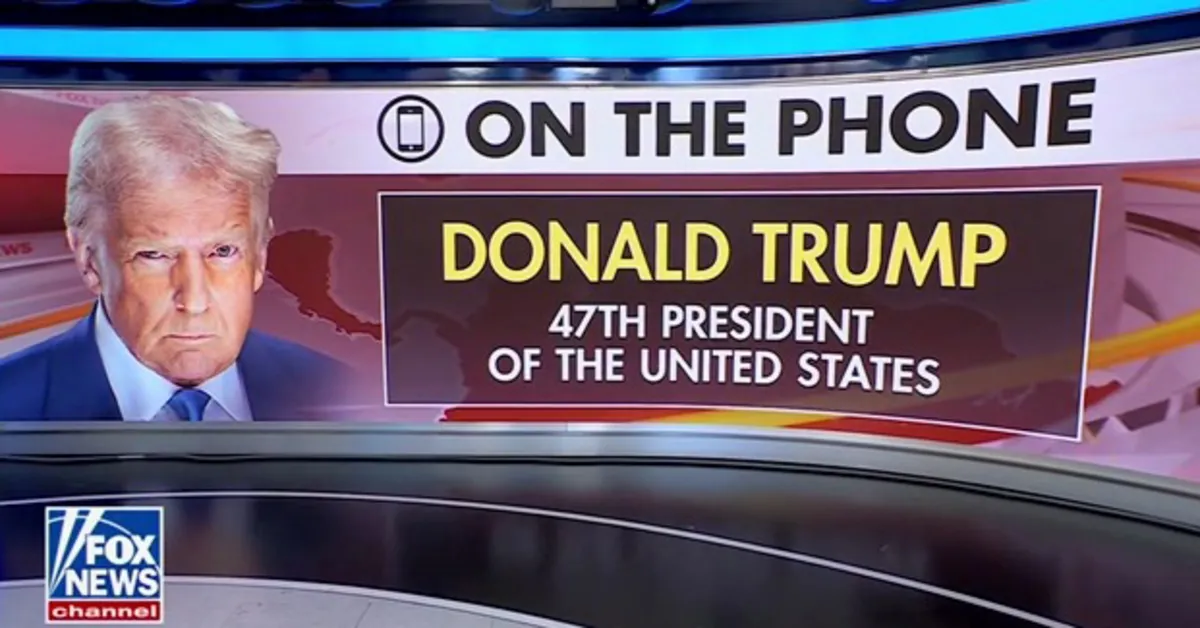
In an exclusive interview on Fox & Friends this morning, President Donald J. Trump shared insights from yesterday's significant White House peace summit with Ukrainian President Volodymyr Zelenskyy and key European leaders. The President highlighted his bold diplomacy efforts, emphasizing his unwavering commitment to halting the ongoing bloodshed and achieving lasting peace in the region. His efforts to rally European allies to take charge of security were central to paving the way for a resolution to the conflict.
During the interview, President Trump revealed that he facilitated a bilateral meeting between President Putin and President Zelenskyy, stating, “I thought I’d first let them meet. They haven’t been exactly best friends… It only matters if we get things done… I hope that President Zelenskyy will do what he has to do. He has to show some flexibility also.” This diplomatic initiative aims to foster communication between the two leaders, who have historically had a strained relationship.
President Trump further elaborated on his call with President Putin, saying, “I told him that we’re going to set up a meeting with President Zelenskyy, and you and he will meet. After that meeting, if everything works out OK, I’ll meet and we’ll wrap it up. It takes, in this case, two to tango. They have to have somewhat of a relationship; otherwise, we’re just wasting a lot of time.” This statement underscores the necessity of dialogue and mutual understanding in resolving complex international tensions.
Expressing the urgency of the situation, President Trump recounted a moment from the summit: “At the table, one of the gentlemen… he said, ‘Well, let’s meet in another month or two and let’s see if we can start making some…’ I said, ‘A MONTH OR TWO!? You’re going to have another 40,000 people dead in a month or two — you have to do it TONIGHT.’ And I did, actually — I called President Putin and we’re trying to work out a meeting with President Zelenskyy.” This emphatic statement highlights the dire need for immediate action to prevent further loss of life in Ukraine.
Reflecting on the relationship between President Putin and President Zelenskyy, Trump noted, “I think the fact that maybe they’re getting along a little bit better than I thought; otherwise, I wouldn’t have set up the bilateral meeting, I would’ve set up a trilateral. But I think they’re doing a little bit better. There’s been tremendous bad blood.” This observation offers a glimmer of hope for diplomatic progress in the region.
When discussing the future of Ukraine, President Trump outlined potential pathways for long-term peace, stating, “They’re not going to be a part of NATO, but we’ve got the European nations and they’ll front-load it. Some of them — France, Germany, UK — want to have boots on the ground. I don’t think it’s going to be a problem, to be honest with you.” This plan indicates a multi-national approach to security in Ukraine, involving direct support from European countries.
President Trump firmly rejected the idea of American troops defending Ukraine’s border, assuring, “You have my assurance — and I’m President. I’m just trying to stop people from being killed.” His position reinforces a focus on humanitarian efforts rather than military intervention.
In his discussions with European leaders, President Trump noted their desire to take a leading role in the situation. He remarked, “They want to get back to leading their countries. They’re consumed with this far more than we are… There will be some form of security. It can’t be NATO because that’s just not something that would ever, ever happen.” This insight illustrates the shifting dynamics of international leadership and responsibility regarding the conflict in Ukraine.
Concluding his remarks, President Trump commented on the renewed respect he believes European leaders have for the United States: “I think really, they have respect for our country again. A year ago, they wouldn’t have come. They wouldn’t have even thought about it. Now, we’ve become the hottest country anywhere in the world. Everybody wants to be here.” This statement highlights the changing landscape of international relations and the potential for renewed cooperation among nations.